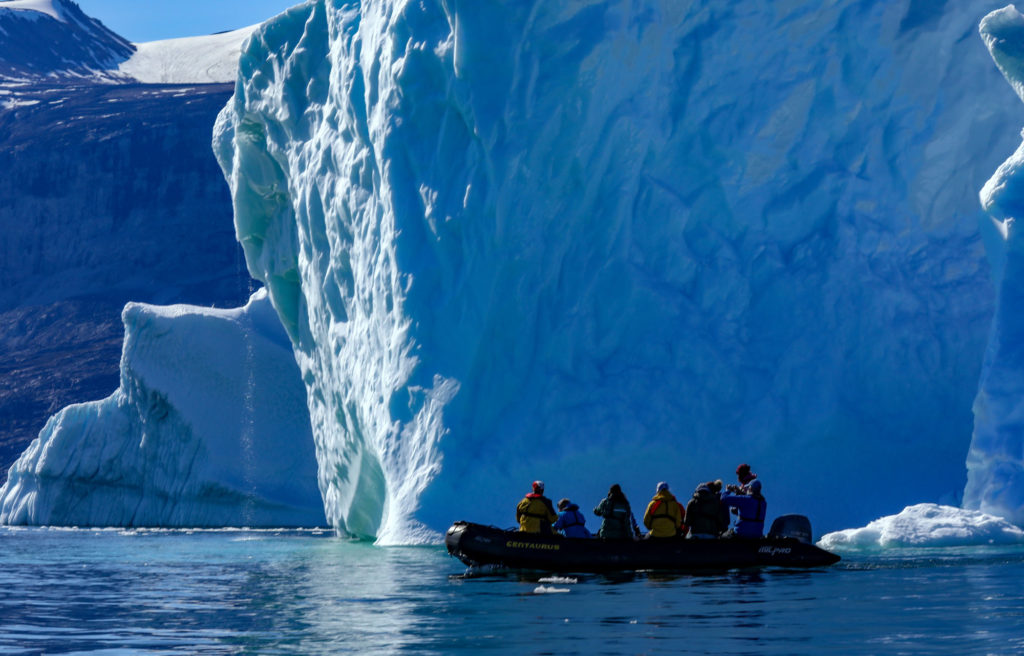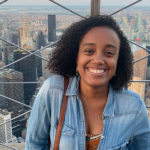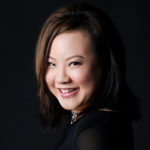



Instructors: Amanda Castleman, Jessica Poitevien and Leslie Hsu Oh
Date: 9/3/25
Duration: six weeks
Price: $480, full scholarship available (please note: payment plans are now available)
Enroll now!
Take your travel writing prose to the next level, honing your voice and perspective. This six-week online workshop explores imagery and epiphanies apt to an area. Sharpen your eye for timely angles and compelling quests. Push your plot arcs further and master the interweaving of action, analysis and reflection.
From briefs to longer-form narrative, this course helps intermediate to expert authors refine their games. We’ll delve into the sound of words on the page, as well as how to capture the best quotes from locals and experts. The class will even touch upon investigative tactics: when to tuck that press pass in your hat band… and when to meditate and read poetry for inspiration. Finally, you’ll refine your cutting, redrafting and re-purposing skills, exploring the same material through different lenses.
Each week you’ll received detailed developmental edits by renowned travel writer and instructor Amanda Castleman, who has taught this genre since 2003. Past travel-writing students have taken this momentum into bylines at AARP, Afar, Outside, National Geographic, Travel + Leisure, The Independent, The Guardian, The Los Angeles Times, The Washington Post, The New York Times, The Toronto Sun and The Christian Science Monitor. One landed three clips in national outlets — off her first pitches ever — halfway through the course. A handful have now won travel writing’s most prestigious prize, the Lowell Thomas, and been featured in Best Travel Writing.
Seattle-based lead instructor Amanda Castleman has lived abroad in Europe and the Middle East, and has taught travel writing online since 2003 — an unrivaled track record in the field. Here she works intensively with students’ prose, interleaving comments (developmental line-edits). She fine-tooth-combs the text, figuring out what’s naughty and what’s nice — and why. By the last lesson, you should have a polished draft ready for submission… and be on your way to making vacation a vocation.
Alumni describe Amanda as a “a dream teacher, just the right balance between a knuckle-rapping tutor and a mom full of hugs.” Her feedback has been celebrated as amazing, funny, insightful, confidence-boosting, and “exceptional in terms of quality, detail and sheer usefulness.” One student commented, “A fine-toothed-comb edit like this is hard to find. I can’t wait to get started revising: it’s like being told the cheat to a Sonic the Hedgehog game at school and rushing home to test it out!”
Co-teacher Jessica Poitevien has expatted in Spain and Columbia. She writes for outlets including Condé Nast Traveler, Daily Beast, People, National Geographic, and Travel + Leisure. Our third instructor, the fantastic Leslie Hsu Oh, has a degree in biology and ethnobotany, and an MFA in creative nonfiction and public health from Harvard. Her writing and photography appears in Alpinist, Backpacker, Conde Nast Traveler, National Geographic, Outside, Parents, Saveur, Smithsonian, Travel + Leisure, Vogue, Washington Post, and elsewhere. Best American Essays has honored her work, along with all the major US travel writing competitions.
But awards and publications are just icing on the cake: wherever you start from, this online workshop will help you kick things up a few notches.
This workshop has deadlines, but no fixed time you must be online.
- Lectures — Tuesdays (written, read at your convenience)
- Assignments — due by midnight on Sundays wherever you are
- Critiques — post Wednesdays by midnight Pacific
- Peer feedback: due by midnight on Wednesdays
- Special projects, like bios at the start — Fridays
Not sure if the master class is for you? Take our quiz to find out.
This team also anchors the Travel Writing series. Need help deciding which is best for you? Check out this analysis — and feel free to email us with any questions at info@writelikeahoneybadger.com!
.
TRAVEL WRITING MASTER CLASS CURRICULUM
Please note: the master class has written lectures, feedback, and chat forums. There is no fixed time requirement to be on the classroom site. The Travel Writing Master Class has deadlines, but no fixed time you must be online. We can offer extensions because of travel or national holidays: please chat with your instructors ahead of time to arrange this!
Week 1: Work Every Angle
Advanced narrative techniques and how to develop strong, “sticky” news pegs that excite editors to commission and audiences to read avidly.
Assignment: Write a short-form essay or feature with a timely angle (500-word max).
Week 2: Place as Character
Delve into the revelatory details and techniques that illuminate a story, raising place from “backdrop” to center stage.
Assignment: Write a feature or essay, emphasizing the sensations, history and culture of a destination (750-word max).
Week 3: The Plot Thickens
Using motion, suspense and blocking action to build literary steam … and ideally reveal a deeper message specific to the location.
Assignment: Reverse-engineer an outline from a completed article (your choice). Track the arc of ideas and emotions, indicating the lede, nutgraf, exposition, points of revelation, rising action, climax, point of insight, denouement and kicker (500-word max).
Week 4: The Point of Insight
Evolution of an idea: how a theme, narrator and sense of place transform throughout a tale. How to choose revelatory details and a point of insight aligned with a piece’s theme or quest.
Assignment: two pitches (max of 500 words total)
Week 5: Look Who’s Talking
Explore how to populate stories with characters, including a defined and intriguing narrator, where applicable. Go beyond interviews and authoritative sources to vignettes that evoke universal themes and rich, specific experiences. Learn how to gather revelatory quotes and telling dialogue, then smoothly integrate these other voices with your own.
Assignment: Write — or revise — a story, employing three original, authoritative sources (750-word max)
Week 6: Voice and Rhythm
The sound of the word on the page has power, as does its placement within a piece, a paragraph and even a phrase. Explore how to write with force and flow, emphasizing the important elements of a story through thoughtful, conscious choices.
Assignment: a 1,000-word piece for line-editing OR submit a longform story of up to 2,500 words for more general comments
Note: accommodations can be made around national or religious holidays, as well as major travel plans!
.
OPTIONAL READING FOR THE TRAVEL WRITING MASTER CLASS
The course has no requirements — too difficult with such far-flung students — but the following books make great additions to any dedicated travel writer’s bookshelves.
- A Writer’s Coach by Jack Hart
- Writing for Story by Jon Franklin
- Writing Tools by Roy Peter Clark
- The Best American Travel Writing 2021 edited by Padma Lakshmi
- Telling True Stories edited by Mark Kramer and Wendy Call
.
SELECT WORKS BY AMANDA’S ALUMNI
- Best Travel Writing (gold in travel & sports): The Ringer by Jennifer William
- Bon Appétit: From Pandemic to Protests: How Food Businesses Nationwide are Responding by Sophia Gottfried
- Boston Globe: It’s Chopin’s 200th year, and Warsaw is Humming by Mary Ellen Monahan
- Christian Science Monitor: Magdalena Island’s Magellanic Penguins by Anne Clippinger
- Christian Science Monitor: Cats Among the Ruins by J Almon Polk
- Food Network Canada: Spotlight on Luang Prabang (Laos): A Hidden Foodie Gem by Mardi Michels
- The Guardian Weekly: Bhutan: a day of sunshine in the midst of the rainy season lifts spirits by Rachael Davey
- Insider: I gave my Afro-Latino boyfriend the ‘police talk’ before visiting the US. After George Floyd’s killing, I watched his baptism into American life by Jessica Poitevien
- Misadventures: Gorillas — and a Role Model — in the Mist by Lindsay Rohrbaugh
- The Medium: Little Snail Slowly Slowly Climb Mount Fuji by Aaron Paulson
- National Geographic Traveler: Miami Road Trip by Kelly Amabile
National Geographic: Celebrate Pride with 10 travel books by LGBTQ authors by Gillian Kendall
- National Parks Conservation Association: Forest Lights by Gina Vercesi
- The New York Times: Chic but Not Famous: A Resort Named José by Paola Singer
- San Francisco Chronicle: Spirit of Resistance Lives on in French Village by Debra Borchert
- Sierra Magazine: When Nature Calls in the Backcountry, It’s a Problem for Parks by Colleen Stinchcombe
- Spinoff: The Christchurch that could be: How the FESTA festival of urban renewal is creating magic out of disaster by Summer Hess
- The Vacation Gals, a site co-authored by alumna Kara Williams, which won the 2012 Lowell Thomas (travel-writing’s top prize) for blogging.
- Washington Post: Finding Gems in N.C. Ore, Not by Gaston Lacombe
- World Hum: Square Grouper on the Cocaine Coast by Jill K. Robinson, honored by the 2017 Lowell Thomas Awards for Strolling among Ghosts in Vietnam
- Yahoo News and Christian Science Monitor: Pandemic pulls Latin America’s trans community into the spotlight by Jennifer Bitterly
.
REVIEWS OF OUR INSTRUCTORS
“Amanda is a phenomenal editor and a patient teacher; precise but not nitpicky, critical but not harsh. My writing is clearer and more focused than ever before. I spent eight semesters in creative writing classes at UC Berkeley, and Amanda offered more guidance and carefully directed help than any professor I took there.” – Jenny Williams
“A fine-toothed-comb edit like this is hard to find. I can’t wait to get started revising: it’s like being told the cheat to a Sonic the Hedgehog game at school and rushing home to test it out!” – Simon Willis
“Jenn has built a career on steering newsrooms through important, difficult work and challenging times; from financial strife and restructures to designing new and ethical business models that keep journalism alive without compromising its integrity. She’s a strategic editor and manager overflowing with empathy and — as someone who’s grown up in newsrooms as a reporter, editor and leader — just gets what motivates her teams. And, as she climbs she brings people with her, showing just how true she is to developing talent and building inclusive, rewarding cultures. On top of all the management stuff, she’s whip smart, fast-thinking, fun and a fastidious editor and news obsessive.” – Kerry Eustice, Guardian US
“[Amanda] is a dream teacher, just the right balance between a knuckle-rapping tutor and a mom full of hugs. Thanks again: the course fees are lots cheaper than a shrink!” – Linda Petrucelli
“Jessica’s upfront insight into freelancing and writing provided a different sort of depth to the overall experience of the course. Her responses to the questions we as a class posed to her resonated with me immensely, especially those about making strides as a freelancer and the ideating-pitching-writing process. The generous tips, advice and guidance that she provided were rooted in practicality, and she managed to share them with a cheerful dose of encouragement and positivity. No question was too basic to not merit a detailed, thoughtful response that came straight from the heart. I think I’m going to often go back and read through her responses when in doubt and in need of some guidance!” — Tasneem Pocketwala
“Amanda is a phenomenal editor and a patient teacher; precise but not nitpicky, critical but not harsh. My writing is clearer and more focused than ever before. I spent eight semesters in creative writing classes at UC Berkeley, and Amanda offered more guidance and carefully directed help than any professor I took there.” — Jenny Williams
“Jessica’s feedback was positive and encouraging — vital for those of us building confidence about pitching — but also constructive. She knows what it takes to land an assignment with an editor, and her expertise came through in her thoughtful line edits and comments.” — Alyssa Kagel
“Amanda Castleman is the best teacher I’ve ever worked with. Her feedback was exceptional in terms of quality, detail, extent, and sheer usefulness. Her generosity with her time and expertise is astonishing. I learned a huge amount, have had four pieces published and paid for (including my very first assignment, in The Guardian) and have completed the course with a sense of expanded possibilities. Thank you so much – this is the most rewarding educational experience I’ve had.” — Rachael Davey
FREQUENTLY ASKED QUESTIONS
Where are the classes held?
We’ll be working on Google Classroom, a browser-based teaching platform. This allows files to be shared easily, without cluttering your inbox, and gives you classroom access from any net-wired terminal, anywhere in the world. But you’ll still have options to push alerts to email, if that appeals.
When does the bell ring?
Never! Go online whenever you please — the classroom is open 24/7.
Is there a video component or live chat?
No. The lectures, feedback and chat forums are all done in writing, so we can accommodate students traveling and living in many different time zones.
Is the course suitable for experienced writers?
Absolutely. Amanda’s taught full-time journalists and professionals jumping genres or reviving skill-sets (including former staffers for Shape, The Los Angeles Times and Wall Street Journal).
Can unpublished or emerging writers benefit from this workshop?
We can make that work. Wherever you are on the ladder, we can help you climb higher. But you may get more from the master class after an introductory course or time in the industry,
How much time does it take?
The time commitment varies, of course, but students seem to average 30-60 minutes for the lectures and at least 60-90 for the assignments. Ambitious readers can delve deep via links and articles: some study is self-guided and entirely optional.
What sort of success can I expect?
Students have published in outlets from Sunset to National Geographic Traveler and The New York Times. One had to pause, then restart the class later, because she landed so much work off the first pitches she ever sent. A handful have now won travel writing’s most prestigious prize, the Lowell Thomas, and been featured in Best Travel Writing.
But placement depends on timing, connections and marketing savvy, as much as talent. We work to boost each student up a few ladder rungs from where he or she began. For some, that’s publishing a first clip, for others breaking into A-list publications.
I live outside the U.S. Is this a problem?
The class is entirely online with no fixed hours. All you need is a word-processing program, Internet access, a browser and a credit card. A recent session included students from Ireland, Scotland, Prague, India and New Zealand, as well as across North America; such a mix really invigorates the class. Amanda has staffed in the US and UK – and continues to work for publications around the globe. Thus she’s sensitive to Anglophone dialects and how they might affect publication-ready prose.
Are the assignments flexible?
Yes. Amanda will line-edit alternative submissions that stick within the week’s word count. She’s also happy to give more general, holistic comments on larger pieces by arrangement. This allows students working on long-term projects to benefit from the lectures, peer feedback, the camaraderie of class and weekly instructor critiques at a “bulk discount” cost.
Will this course help a blogger?
Yes, if you’re eager to sell work to the mainstream media. You’re welcome to work on letters negotiating ads, sponsorships, ambassadorships or fundraising, but the course material won’t focus on these topics.
What stops other writers from stealing my ideas?
The world teems with story concepts and writers often stumble across the same ones: overlap tends to be coincidence, not theft. But this workshop will inoculate you, by focusing on the stories you’re most suited to tell, and digging deep for original angles, access and sources to make them shine. Between your unique take – and the 10,000-odd English-language publications worldwide – there’s room for students to explore the same topics, working together, rather than being at odds.
Will other students steal my contacts and outlets?
No. We encourage people to pool intel, as a rising tide lifts all boats. But you’re under no obligation to divulge publication details or editors’ emails, if that doesn’t feel comfortable.
What if I have another question?
Please ask us! Email amanda@writelikeahoneybadger.com. (Please note: we supply this address so we can assist students and alumni. We do not accept proposals to improve SEO or app/web-dev proposals. All off-topic emails will be reported as spam.)

